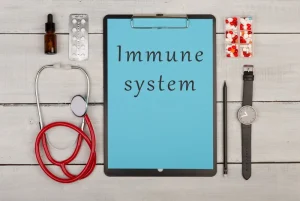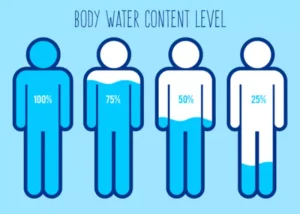
This means that not everyone addicted to drugs will experience all these symptoms. Additionally, the severity of addiction can range from mild to severe, with some people experiencing similar consequences but with more profound effects and strain on the quality of life. Addiction and mental health often go hand in hand, creating a complex web of challenges. Substance use can exacerbate existing mental health conditions or trigger new ones.
What Are The Signs And Symptoms Of Ongoing Sobriety and Recovery?

Withdrawal symptoms occur when an individual who has developed tolerance and dependence reduces or stops using the substance they have been consistently consuming. This can happen at any stage after the initial experimentation choose the correct cycle of addiction phase, once the body has adjusted to regular exposure to the substance. Withdrawal reflects the body’s reliance on the drug to function normally and its struggle to recalibrate after the drug is removed.
What Are the 5 Stages in the Addiction Cycle?
While the exact number of stages may vary among different sources, a consensus identifies key phases in the development of addiction. Addiction is a complex and multifaceted phenomenon that has perplexed researchers, healthcare professionals, and wider society for centuries. Addictions of all sorts have the power to grip people and can alter their behaviour, thoughts, and lives.
- They may mistakenly think that those who use drugs lack moral principles or willpower and that they could stop their drug use simply by choosing to.
- It should not be used in place of the advice of your physician or other qualified healthcare providers.
- In reality, drug addiction is a complex disease, and quitting usually takes more than good intentions or a strong will.
- These statistics highlight the prevalence and challenge of managing withdrawal in the recovery process.
Stage 2: Regular Use
Surges of dopamine in the reward circuit cause the reinforcement of pleasurable but unhealthy behaviors like taking drugs, leading people to repeat the behavior again and again. During this stage, the person may not have any intention of continuing the use. However, not everyone who experiments will continue to the next stages of addiction. It can depend on various factors, including personal vulnerability, environment, and the substance or behavior involved.


Cravings are particularly strong in the early stages of abstinence, making this period critical for relapse prevention. Given its chronic and relapsing nature, addiction often requires a multi-faceted treatment approach. This can range from medical interventions like detoxification and medication-assisted treatment to behavioral therapies and long-term aftercare in an outpatient setting, even once sobriety is achieved. Even in the recovery stage, ongoing maintenance treatment is essential to manage cravings, prevent relapse, and address any co-occurring mental health conditions. Dependence is another critical stage of addiction that refers to the body’s adaptation to the presence of a drug, requiring higher doses to achieve the same effects initially experienced. This escalation in dosage can further entrench the cycle of addiction, making treatment even more crucial at this stage and also necessitating medical care in order to recover.
- This cycle can be arrested at any point after the addict or alcoholic makes a decision or is forced to get help.
- By using the most effective techniques, those proven approaches used by experiential experts, the chances of becoming addiction-free are maximised.
- Addiction and mental health often go hand in hand, creating a complex web of challenges.
This involves examining the definition of addiction and recognizing the complexity that lies beneath its surface. This variability underscores the complexity of addressing cravings in treatment settings, as each individual may describe and experience cravings differently. Tolerance refers to the physiological process where a person experiences a reduced effect from a drug after using it repeatedly. As the body adapts to the drug’s continuous presence, the initial dosage no longer produces the same effect, compelling an increase in dosage to achieve the desired results. This phenomenon is common with many prescription medications and substances according to Merck manual research on Tolerance and Resistance To Drugs by Shalini S. Lynch, in 2022.
Treatment Options
For example, if you had been taking 10mg of a prescription drug, over time you might notice that in order to feel the way you used to feel when taking 10mg, you now have to take 15mg or 20mg. According to the National Institute on Drug Abuse (NIDA), Recovery is a process of change through which people improve their health and wellness, live self-directed lives, and strive to reach their full potential. If work, school, or home duties are consistently ignored or poorly performed due to drug use, this is a symptom of abuse.
Maybe it’s a teenager trying alcohol for the first time at a party, or an adult experimenting with prescription painkillers after an injury. Our representatives can answer your questions and guide you toward treatment in your area. Your call will be confidential, and you don’t have to commit to a program https://ecosoberhouse.com/ to learn more about treatment options. Call today and find out how we can help you towards a healthier, happier future. As the opioid epidemic continues to challenge public health, MAT stands as a proven, evidence-based strategy that can save lives and support individuals on their path to recovery.
- Effective treatment requires comprehensive strategies that address both the biological underpinnings and the psychological aspects of the disorder.
- Medication-Assisted Treatment – The use of medications, in combination with counseling and therapy, to manage withdrawal symptoms and cravings.
- Let’s take a closer look at the various phases an individual might experience along the way.
- For instance, problematic drinking resulting in blackouts or monthly excessive cocaine use are indicative behaviors.
Support Systems and Resources



